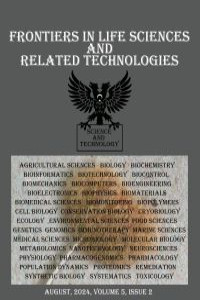Research Article
Issue Editorial Board

Prof. Dr. Ahmet AKSOY 1966 Konya doğumlu olup İlköğretimini köyünde, Orta ve Lise öğrenimini Konya Ereğli İvriz Öğretmen Okulunda tamamlamıştır. 1990 yılında Ege Üniversitesi Fen Fakültesi Biyoloji Bölümü Botanik Anabilim Dalı’ndan mezun olmuştur. 1992 yılında Ege Üniversitesi Fen Fakültesi Biyoloji Bölümü Botanik Anabilim Dalı’nda Yüksek Lisans çalışmasını, 1996 yılında ise İngiltere’nin Bradford Üniversitesi Çevre Bilimleri Bölümü’nde Doktora çalışmasını tamamlamıştır. 1991 yılında Erciyes Üniv. Fen- Edebiyat Fakültesi Biyoloji Bölümüne Araştırma Görevlisi olarak atanmıştır. 1996 yılında İngiltere’de bir yıl öğretim üyesi olarak çalışmıştır. 2002 yılında Üniversite Doçenti, 2007 yılında profesör unvanını almıştır 1996-2007 yılları arasında Erciyes Üniv. Fen Edebiyat Fakültesi Biyoloji Bölüm Başkan Yardımcılığı ve 2007-2012 yılları arasında Biyoloji Bölüm Başkanlığı görevini yürütmüştür.
2013 yılından itibaren Akdeniz Üniversitesi Fen Fakültesi Botanik Anabilim dalında öğretim üyesi olarak çalışmaktadır. Aynı fakültede 2017-2018 yılları arasında dekanlık görevini yürütmüştür. Halen Akdeniz Üniversitesi Senato Üyeliğini yürütmektedir. Uzmanlık alanları bitki ekolojisi ve bitki sistematiği, koruma biyoloji olmakla birlikte; 115’in üzerinde uluslar arası makalesi (SCI) ve 200’ü aşkın ulusal ve uluslararası sempozyum bildirisi ve 20’nin üzerinde İngilizce ve Türkçe dillerinde kitap ve kitap bölüm yazarlığı bulunmaktadır. Ayrıca 40’ın üzerinde Üniversitelerde Bilimsel Araştırma Projesi ve TÜBİTAK projelerinde araştırmacı ve proje yürütücüsü olarak görev yapmıştır. Helen 2 TÜBİTAK ve 2 Akdeniz Üniversitesi Bilimsel Araştırma Projesi yürütmektedir.
Şu ana kadar 19 Yüksek Lisans ve 11 Doktora tezi yönetmiş ve 2 Yüksek Lisans ve 2 Doktora tez projesi ise devam etmektedir. Çok sayıda ödüle sahip olmakla birlikte 2015 yılında TÜBİTAK tarafından Yayın Teşvik Ödülünü ve TÜBA “En İyi Çeviri Eser Ödülü”nü de kazanmıştır. Aksoy evli ve iki çocuk babasıdır.

Experimental Pathology, Cytopathology, Dermatopathology, Gynecopathology, Soft Tissue Pathology, Breast and Gastrointestinal Tumors.
He was born in Sivas/Gürün at 1958.
He graduated from Bursa High School (1974) and after Basic Medical Education at Hacettepe Medical Faculty (1975-1980), he graduated from Erciyes University Medical Faculty (1982).
He concluded his postdoctoral Pathology training in Istanbul University Cerrahpaşa Medical Faculty (1988).
He has taken professional responsibilities at Aegean Army Hospital (1990), Kartal Education and Research Hospital (1989-1999), Interuniversity Committee (Ass. Professor, 1995), Taksim Education and Research Hospital (Director of Clinic, 1999-2009), Marmara University (Professor, 2010-2018), and Near East University (Part-time Professor, 2015 -).
Since 2018, he is an academic member of Istinye University Medical Faculty. He is a member of Istanbul Chamber of Doctors, Turkish Society of Pathology, Ankara Society of Pathology, Turkish Society of Cytopathology, and European Society of Pathology. He has worked on Liver Transplantation Pathology (Hopital Paul Brousse, Paris, 1993).
He is also a member of INEDAD (Inegöl Society, Vice-President), Gürün Cultural Society (Member of Board) , and Sivas Foundation.


Aim & Scope
Frontiers in Life Sciences and Related Technologies (Front Life Sci RT) is an international peer-reviewed journal that publishes original articles primarily Biology and Molecular Biology studies, particularly in the fields of The Life Sciences and Related Technologies. The publication languages are both English and Turkish. Also the main objective of Frontiers in Life Sciences and Related Technologies is to provide high quality publications to scientists, researchers and engineers from both academia and industry who want to communicate the latest developments and practices in their field.
FLSRT publishes original papers in various fields of Life Sciences and Related Technologies that cover, but are not limited to, the following areas:
Agricultural engineering, Agricultural policy, Agricultural production, Agricultural soil science, Agroecology, Agronomy, Anatomy, Astrobiology, Basic medical sciences, Biocomputers, Biocontrol, Bioengineering, Bioelectronics, Biomaterials, Biomedical engineering, Biomedical science, Biomolecular engineering, Biomonitoring, Biopolymers, Biotechnology, Biochemistry, Bioinformatics, Biolinguistics, Biological anthropology, Biological oceanography, Biology, Biomechanics, Biophysics, Botany, Cell biology, Conservation biology, Developmental biology, Diagnostic medical sciences, Ecology, Ethology, Environmental engineering, Evolutionary biology, Farming, Farming methods and practices, Food sciences, Forestry, Fermentation technology, Genetics, Histology, Genomics, Immunology, Interdisciplinary medical fields, Internal medical sciences, Kinesiology, Marine Sciences, Metabolomics, Microbiology, Molecular biology, Nanotechnology, Neuroscience, Optogenetics, Paleontology, Pharmacogenomics, Pharmacy, Physiology, Population biology, Population Dynamics, Proteomics, Remediation, Quantum biology, Surgical medical sciences, Structural biology, Synthetic biology, Systematics, Systems biology, Theoretical biology, Toxicology, Transcriptomics, Veterinary sciences, Virology.
Author Guidelines
Frontiers in Life Sciences and Related Technologies Journal accepts
• Original research articles,
• Review articles,
in the field of life sciences and related technologies.
Material Disclaimer: The authors are fully responsible for their work, and they hold sole responsibility for the articles published in the journal.
Maps and affiliations: The publisher stays neutral concerning jurisdictional claims in published maps and institutional affiliations.
Plagiarism is using someone else's publication in a way that violates the rules and ethics. When plagiarism occurs, the originality of the work is destroyed. Intihal.Net is an internet-based plagiarism detection and reporting software specialized for detecting many types of plagiarism. Intihal.net is recommended by TÜBİTAK ULAKBİM and is applied to every study in our journal. The report is expected to be 18% and/or below.
Responsibilities: The editors, editorial board, and publisher do not assume any responsibility for the article’s contents and for the authors’ views expressed in their contributions.
The statements and opinions published represent the views of the authors or persons to whom they are credited. Publication of research information does not constitute a recommendation or endorsement of the products involved.
Ethics Committee Report (if necessary)
Reviewer Suggestion (optional)
Ethical Principles and Publication Policy
Ethical standards for publication exist to ensure high-quality scientific publications, public trust in scientific findings, and that people receive credit for their ideas. Inaddition, the authors are encouraged to follow the ethic guidelines of the Committee on Publication Ethics (COPE).
Plagiarism
All journals published by FLSRT are committed to publishing only original material, i.e., material that has neither been published elsewhere nor is under review elsewhere. Manuscripts that are found to have been plagiarized from a manuscript by other authors, whether published or unpublished, will incur plagiarism sanctions.
Manuscripts are checked by Ithenticate Plagiarism or Turnitin System.
Duplicate Submission
Manuscripts that are found to have been published elsewhere, or to be under review elsewhere, will incur duplicate submission/publication sanctions. If authors have used their own previously published work, or work that is currently under review, as the basis for a submitted manuscript, they are required to cite the previous work and indicate how their submitted manuscript offers novel contributions beyond those of the previous work.
Citation Manipulation
Submitted manuscripts that are found to include citations whose primary purpose is to increase the number of citations to a given author’s work, or to articles published in a particular journal, will incur citation manipulation sanctions.
Data Fabrication and Falsification
Submitted manuscripts that are found to have either fabricated or falsified experimental results, including the manipulation of images, will incur data fabrication and falsification sanctions.
Improper Author Contribution or Attribution
All listed authors must have made a significant scientific contribution to the research in the manuscript and approved all its claims. It is important to list everyone who made a significant scientific contribution, including students and laboratory technicians. These contributions will be stated in the manuscript.
Redundant Publications
Redundant publications involve the inappropriate division of study outcomes into several articles.
Sanctions
In the event that there are documented violations of any of the above mentioned policies in any journal, regardless of whether or not the violations occurred in a journal published by FLSRT, the following sanctions will be applied:
Immediate rejection of the infringing manuscript.
Immediate rejection of every other manuscript submitted to any journal published by FLSRT by any of the authors of the infringing manuscript.
The prohibition against all of the authors for any new submissions to any journal published by FLSRT, either individually or in combination with other authors of the infringing manuscript, as well as in combination with any other authors. This prohibition will be imposed for a minimum of 36 months.
Prohibition against all of the authors from serving on the Editorial Board of any journal published by FLSRT.
In cases where the violations of the above policies are found to be particularly egregious, the publisher reserves the right to impose additional sanctions beyond those described above.
Editors' responsibilities
Publication decisions
The editor is responsible for deciding which of the papers submitted to the journal will be published. The editor will evaluate manuscripts without regard to the authors' race, gender, sexual orientation, religious belief, ethnic origin, citizenship, or political philosophy. The decision will be based on the paper’s importance, originality and clarity, and the study’s validity and its relevance to the journal's scope. Current legal requirements regarding libel, copyright infringement, and plagiarism should also be considered.
Confidentiality
The editor and any editorial staff must not disclose any information about a submitted manuscript to anyone other than the corresponding author, reviewers, potential reviewers, other editorial advisers, and the publisher, as appropriate.
Disclosure and conflicts of interest
Unpublished materials disclosed in a submitted paper will not be used by the editor or the members of the editorial board for their own research purposes without the author's explicit written consent.
Reviewers' responsibilities
Contribution to editorial decisions The peer-reviewing process assists the editor and the editorial board in making editorial decisions and may also serve the author in improving the paper.
Promptness Any selected referee who feels unqualified to review the research reported in a manuscript or knows that its prompt review will be impossible should notify the editor and withdraw from the review process.
Confidentiality
Any manuscripts received for review must be treated as confidential documents. They must not be disclosed to or discussed with others except as authorized by the editor.
Archiving Policy
FLSRT is accessed via Dergipark platform which utilizes the LOCKSS system to create a distributed archiving system among participating libraries and permits those libraries to create permanent archives of the journal for purposes of preservation and restoration.
Publication Language
Publications submitted to the journal can be written both in Turkish and English.
Publication Frequency
Journal volumes will be published in three times (30th of April, August and December) for each publication year. If the Editorial Board finds it appropriate, a Special Issue can also be published.
Open Access Statement
FLSRT views open-access to academic publications and research as an immutable part of academic endeavour. The publisher recognizes the essence of public good provided by the journal and hence accepts its responsibility as a public service to academic and intellectual betterment.
The publisher is committed to the open access to all academic endeavour and as such, accepts its duty to make published content permanently available and freely accessible by all sections of the worldwide academic community. The publisher does not charge any pecuniary fees for processing, submission, and publication of manuscripts.
The publisher via its host providing institution Dergipark uses Lockss for the archiving and preservation of its online content.
Price Policy
Fee Policy
All articles accepted to the Front Life Sci RT are published without charge for article submission, review or printing.
Indexes
Citation Indexes
Other Indexes
Journal Boards
Editor in Chief

Editorial Board

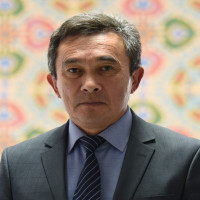

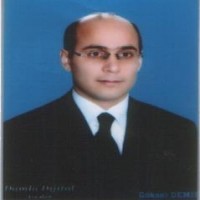








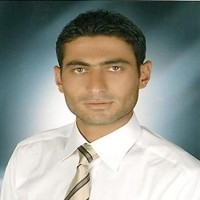




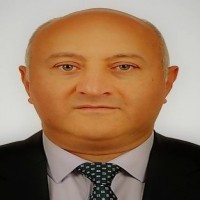

Section Editors


Copy Editors



Layout Editor

Co-Editor

Frontiers in Life Sciences and Related Technologies is licensed under a Creative Commons Attribution 4.0 International License.












